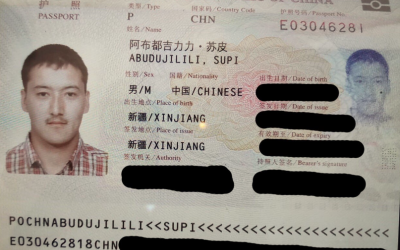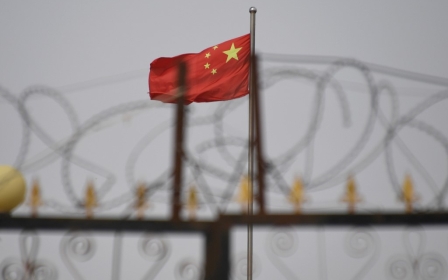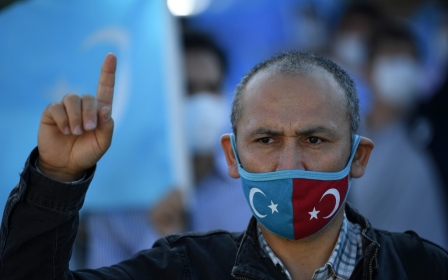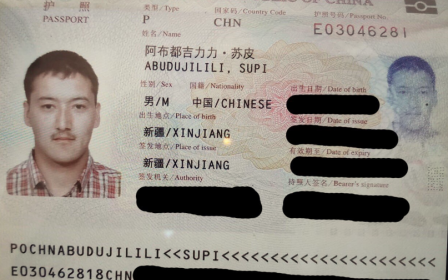Uighur speaks out against husband's 'deportation' from UAE
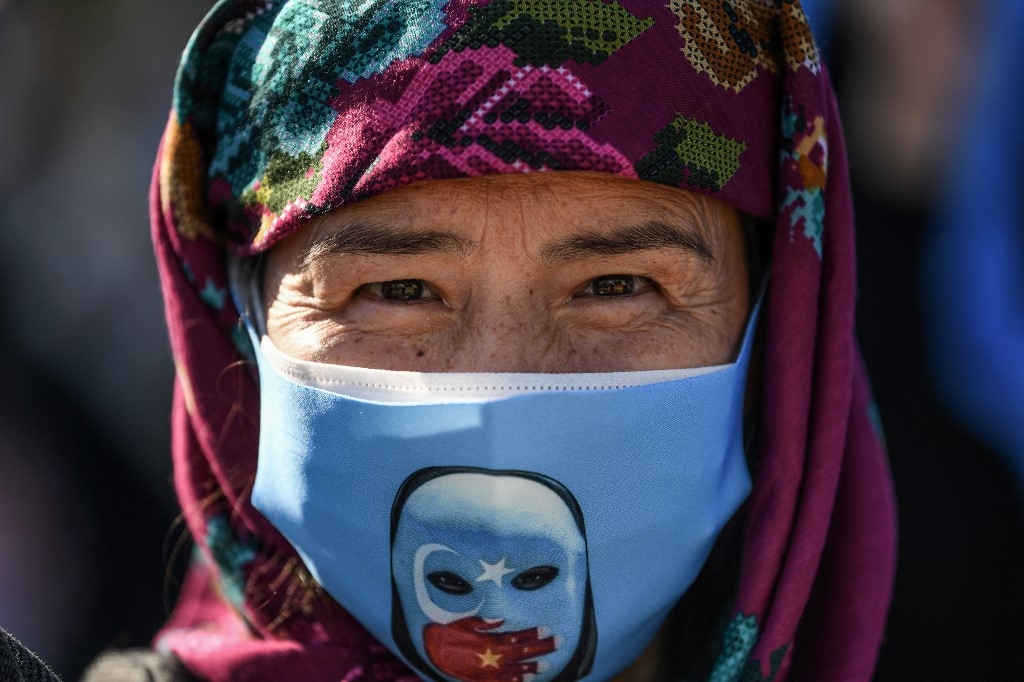
The wife of a Uighur man suspected of being deported to China from the United Arab Emirates has pleaded for her husband's whereabouts for the first time since his disappearance.
In a social media post, Amanissa Talip said her husband Ahmad Talip was deported to China despite having committed no crime.
Leaving behind two children, 35-year-old Ahmad, identified in China as Aihemaiti Talifu, was detained when he visited a police station in Dubai in 2018 to obtain paperwork.
She believes Beijing had demanded the paperwork to set a trap in Dubai in order to capture Ahmed and later deport him back to China.
According to Talip, Ahmad worked for a logistics firm in Abu Dhabi for five years before setting up his own company in the Emirati capital.
"I began to suspect this might be a trap by the Chinese government because my brother-in-law asked my husband to bring some official papers from Dubai which proves that he has no criminal record in the UAE," said Amanissa.
"That's why he went to the police station without any hesitation because he had never committed any crime."
Emirati court documents obtained by Middle East Eye also showed that China had requested Talip's extradition. Dubai's attorney general ruled in 2018 in Talip's favour after China had failed to provide the required documentation for his extradition.
The ruling said the Emiratis should "close the file of extradition of Talifu Aihemaiti...due to not receiving the documents required from the Chinese authorities who wanted the person."
The same day of the ruling, however, Amanissa said the Emiratis had asked her to bring Ahmad's passport in exchange for his release. She later gave them Ahmad's passport after initially refusing to hand it over for his safety.
"They told me that they would bring me back my husband if I give them the passport and I believed them," recounted Amanissa.
"I gave them the passport, but shamelessly they didn't keep their word."
Despite the ruling, three days after his detention Ahmad called his wife and said the Emiratis had taken his blood and planned to deport him back to China.
"I was shocked and in disbelief that something like this could be happening," Amanissa said on Facebook.
Armed with the Dubai court ruling, Amanissa went to the police station to demand her husband's release, but he had already been transferred to Abu Dhabi.
She then travelled to the Emirati capital and wanted an explanation for his incarceration despite court papers ordering officials to stop holding him.
Emirati officials later told Amanissa he had been deported back to China.
Since then, Amanissa has not heard about her husband's whereabouts and fears that Chinese authorities have taken him to a Uighur internment camp.
"Being almost nine months pregnant at the time, and with all the stress and grief, I went to Abu Dhabi Interpol with my five-year-old and asked them to release my husband," Amanissa said on the Facebook video.
"They [police officials] didn't bother looking at the papers, and said we don't know what crime your husband had committed, but we will have to send him to China," she said.
"They have since transferred my husband to another place. Since then, I have lost touch with him."
Speaking about her experiences, Amanissa said: "We have lived in this country for the last six years and love this country.
"But they abused [our] human rights and betrayed us."
Her testimony comes after Middle East Eye reported in 2018 that another Uighur who lived in Dubai was threatened with deportation to China.
Who are the Uighurs and why is China targeting them?
+ Show - HideAccording to multiple reports, more than one million Uighurs, a Muslim-majority Turkic people, are currently being held in internment camps across Xinjiang in western China (or occupied East Turkestan as many Uighurs refer to the region).
Human Rights Watch said in September 2018 that up to 13 million Muslims in Xinjiang have been subjected to “forced political indoctrination, collective punishment, restrictions on movement and communications, heightened religious restrictions, and mass surveillance in violation of international human rights law”.
The Uighurs have have been particularly targeted since Communist party leader Chen Quanguo became Xinjiang’s party secretary in 2016. Under his leadership, a massive surveillance infrastructure was unrolled across the region designed to monitor and control the Muslim community.
Uighurs and ethnic Kazakhs have been routinely rounded up for practising their Islamic faith, including praying, observing Halal, or wearing clothes synonymous with being Muslim.
The Chinese government has even labelled Islam an “ideological illness” and has destroyed some mosques in the region. In the camps, detainees are forced to learn Chinese Mandarin, praise the ruling Chinese Communist Party and face recurrent psychological and physical abuse.
Uighur activists say that entire families have disappeared into the camps, or have been executed.
China has repeatedly denied allegations that it is persecuting the minority group, instead describing the camps as “vocational training centres” designed to counter religious extremism.
It also calls concerns raised by Uighur community members, human rights groups and others “unjustified” and an “interference in China’s internal affairs”.
Abudujilili Supi, a former Islamic studies student at Cairo's Al-Azhar University, fled to Egypt from China in 2012 to freely practise his faith and without fear of the Chinese authorities before travelling to Dubai in 2017 to learn English.
According to his family, several months later, Supi was abducted by non-uniformed Emirati police officials.
He was later released but left the UAE and sought refuge in Turkey.
Last year, the BBC reported that the UAE had collaborated with Beijing to deport Uighurs back to China.
Chinese documents leaked to the New York Times in 2020 also showed how Beijing managed its re-education camps and mass surveillance of the Uighur population in Xingjiang province.
Excerpts from the documents showed how China identified nearly 6,000 Uighurs who were abroad or had papers to travel and were to be monitored by the Chinese state.
It ordered officials to track down individuals "for whom suspected terrorism cannot be ruled out" and "individuals the moment they cross the border and placed into concentrated education and training".
Since 2014, the Chinese government has embarked on a campaign against the Muslim minority group in the country's northwestern province. The region borders Kyrgyzstan, Kazakhstan and Mongolia and it has been under Chinese control since 1949.
The Uighurs total about 10 million people in their home province - a number that is increasingly being outnumbered by ethnic Han Chinese who have settled in the region.
At least one million Uighurs are said to be held in internment camps where they are undergoing political "re-education", while the region itself is under intense and intrusive surveillance.
Middle East Eye propose une couverture et une analyse indépendantes et incomparables du Moyen-Orient, de l’Afrique du Nord et d’autres régions du monde. Pour en savoir plus sur la reprise de ce contenu et les frais qui s’appliquent, veuillez remplir ce formulaire [en anglais]. Pour en savoir plus sur MEE, cliquez ici [en anglais].


